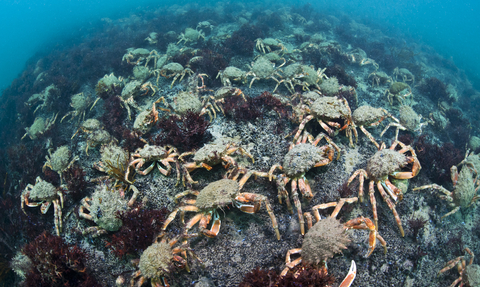Speakers and delegates at the recent 'UK Maerl Forum', the first international event of its kind, were left in sombre mood after a dive organised to explore the maerl beds revealed a worrying deterioration in these ancient habitats.
Participants from across the UK, Ireland and Brittany had gathered in Cornwall to hear talks from UK experts on local maerl beds. Long underappreciated, maerl is increasingly recognised as a irreplaceable marine habitat - acting as a nursery for commercial fish and shellfish species, as well as a vital carbon store.

